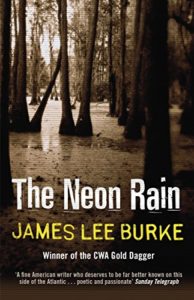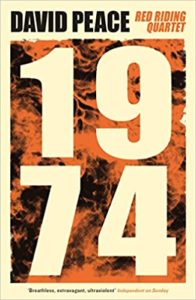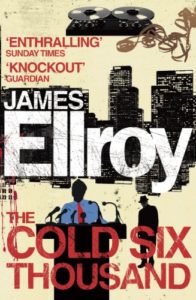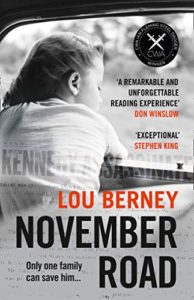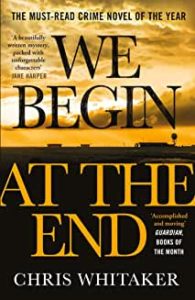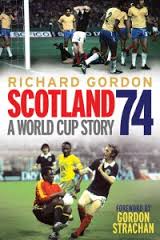No More Games – Gordon J Brown
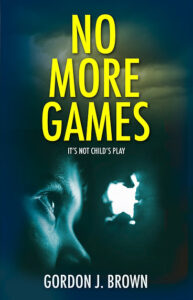 Glasgow, 1974 – a time of power cuts, strikes and the three-day week. Twelve-year-old Ginger Bannerman is playing in the local woods when he stumbles across a gunman in hiding. The man has incriminating evidence of police corruption and forces Ginger to steal a tape recording from a major criminal’s flat. But when Ginger discovers that his dad, a police constable, is mentioned on the tape, his world is turned upside down. With both the gunman and the criminal in hot pursuit, he must prevent the tape falling into the wrong hands if he’s going to save himself and his family. Things have suddenly got very serious.
Glasgow, 1974 – a time of power cuts, strikes and the three-day week. Twelve-year-old Ginger Bannerman is playing in the local woods when he stumbles across a gunman in hiding. The man has incriminating evidence of police corruption and forces Ginger to steal a tape recording from a major criminal’s flat. But when Ginger discovers that his dad, a police constable, is mentioned on the tape, his world is turned upside down. With both the gunman and the criminal in hot pursuit, he must prevent the tape falling into the wrong hands if he’s going to save himself and his family. Things have suddenly got very serious.
I was grateful to recieve a review copy from the author
Ginger and Milky are 12 years old. They go to high school in Glasgow and it’s 1974. Best friends who look out for each other and are about to have a life changing encounter.
You’re going to hear about this encounter, and all the subsequent consequences that spiral from it, as someone is reminiscing and telling their story. The storyteller isn’t sure his audience of one (you will be the second listener) will actually stay to hear the whole story but if they do listen there’s a suggestion of a job to be completed at the end of it.
The story begins with a dead body. In Milky and Ginger’s secret den of all places. Milky has found the body and he seeks out his best friend to share the discovery and seek guidance on what they should do. Once they have assured themselves there really IS a dead body in their den neither boy is prepared to approach the dead guy but that problem quickly becomes irrelevant when their corpse wakes up. Terrified and fascinated in equal measure the boys make their high speed escape.
When Milky returns to the den the next day the dead guy is gone but he’s left something behind…a gun. While the boys are debating what to do with a loaded gun (obviously one of them wants to try it out) the “dead guy” returns to collect his property and a standoff ensues. Again the boys will have to escape from an older (and slower) pursuer but speed won’t help when the man you’re running from knows where you live.
Soon Milky and Ginger are being followed by people that want to involve them in affairs outwith their youthful comprehension. Return the gun. Don’t tell your parents. It’s going to end badly for you if you don’t do as we say. Unfortunately for Ginger and Milky there is a suggestion of corruption within the Glasgow police, their encounter with the gunman brings them directly into this situation.
Someone is keen to utilise their knowledge of these corrupt officers, someone else is already paying these officers and wants to continue to benefit from their services. Both parties are powerful and dangerous individuals and two twelve year old boys are not going to disrupt their plans.
Ginger will soon find himself in possession of a tape which could shine a light on the dark corners of the corruption in the police station – but there’s a suggestion his Dad’s name is on that tape. Can Ginger and Milky risk exposing Ginger’s own father as a criminal?
Huge Kudos to Gordon J Brown for making this story sing from first page to last. The scene setting (Glasgow in 1974) is perfectly captured, the rental televisions, the rolling power cuts, the school janitor sneaking a nip of vodka during class time and the two boys behave exactly how you’d expect two twelve year-old’s to behave. It all feels so very real and the story just flows from one predicament to the next.
No More Games was absolutely mesmerising. Time will slide past, totally unnoticed, as you get caught up in Ginger and Milky’s story. Their problems just snowball from chapter to chapter and every decision they make seems to drag them deeper and deeper into the mire. You will want to know who is telling Ginger’s story and you’ll want to know who is listening. You’ll will them to survive, you’ll hope their problems are not as bleak as they appear and you’ll love how 1970’s Glasgow comes alive for you.
No More Games is published by Red Dog Press and is available directly from the publisher here: https://www.reddogpress.co.uk/product-page/no-more-games

